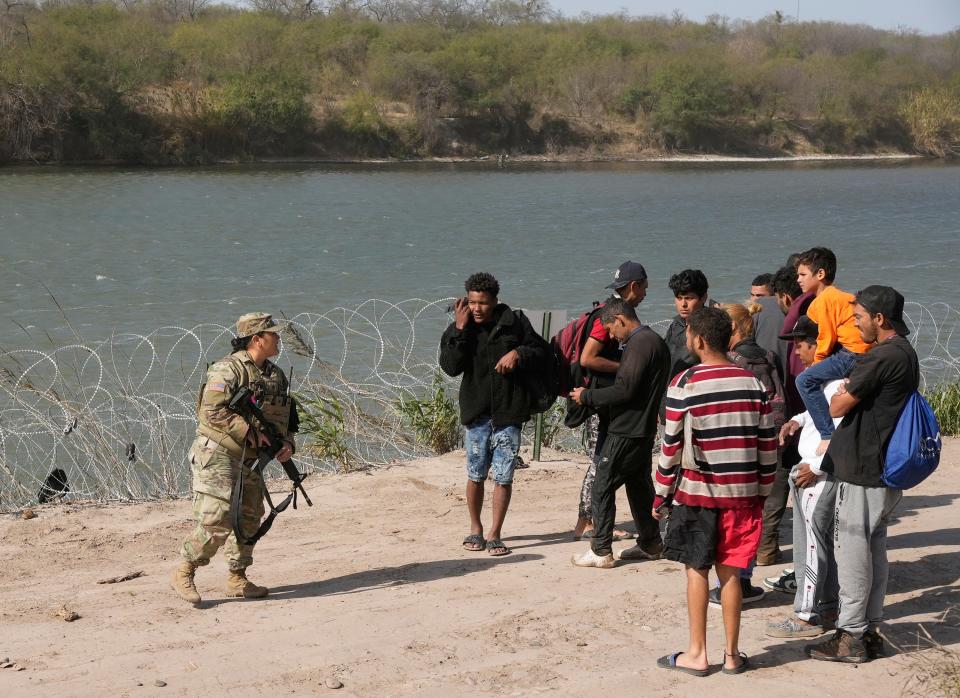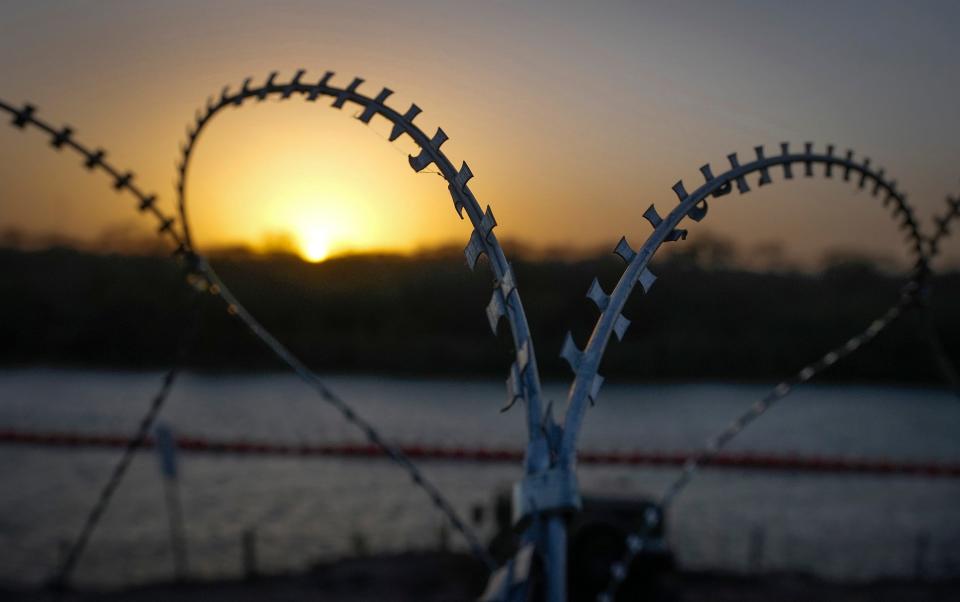Abbott keeps up border security fight after Supreme Court rules feds can cut razor wire
- Oops!Something went wrong.Please try again later.
- Oops!Something went wrong.Please try again later.
Despite the U.S. Supreme Court siding with the Department of Homeland Security to allow federal border officials to cut state-installed razor wire along the Rio Grande, Texas Gov. Greg Abbott and state Attorney General Ken Paxton said the larger legal battle between Texas and the Biden administration is far from settled.
"This is not over," Abbott said in a social media post after the high court's 5-4 ruling. "Texas' razor wire is an effective deterrent to the illegal crossings Biden encourages. I will continue to defend Texas' constitutional authority to secure the border and prevent the Biden Admin from destroying our property."
The Supreme Court's ruling, issued without explanation, set aside last month's decision by the 5th U.S. Circuit Court of Appeals that barred federal border agents from cutting the sharpened coiled wire the state installed along the Texas shore of the Rio Grande. But it did not put an end to the lawsuit Paxton filed in October to prevent the Homeland Security Department and other federal entities from seizing or destroying the wire barriers.
The suit is also part of the increasingly bitter feud between Texas Republican leaders and the Democratic White House over border and immigration policy as a surge of migrants overwhelms border communities.
On the ballot: Texas gov transforms immigration from a border issue to a backyard one. Dems aren't happy.

In a statement, Paxton said the federal justices' decision passes the matter back to the 5th Circuit appeals court, where arguments are scheduled Feb. 7. Paxton filed the appeal after U.S. District Judge Alia Moses of Del Rio found in November that Texas did not present sufficient evidence to demonstrate that federal agents cutting the wires violates state law.
The 5th Circuit reversed the U.S. District Court judge's ruling last month and prohibited federal agents from cutting the wire while the state challenge is litigated in court. The U.S. Justice Department filed an emergency petition this month asking the Supreme Court to allow federal border agents to remove the barriers, and the high court on Monday sided with the federal government.
Lt. Chris Olivarez, Texas Department of Public Safety spokesman for border issues, said the state's $11 billion border initiative, called Operation Lone Star, will "maintain its current posture" of using razor wire and other physical barriers to deter unlawful immigration.
Fatal crossing 2 children, woman die in Rio Grande as feds, Texas debate border control

"The logical concern should be why the Federal Government continues to hinder Texas’ ability to protect its border, all while allowing for the exploitation, dangerous, & inhumane methods of permitting illegal immigrants, including children, to illegally cross a dangerous river where many have lost their lives," Olivarez said on social media.
The Texas Military Department, meanwhile, posted photographs Tuesday on X, formerly Twitter, showing Texas National Guard soldiers and DPS troopers assigned to Operation Lone Star adding more razor wire along the Rio Grande in Eagle Pass.
Last week, Homeland Security and Texas officials publicly clashed, placing blame on each other after a migrant woman and two children were found drowned on the Mexican side of the river near Eagle Pass. The federal agency said Operation Lone Star officials hindered its agents from rescuing a group of migrants in distress who were trying to cross the river before the bodies were found.
The state has restricted federal access to Eagle Pass' Shelby Park, which the state commandeered this month as part of its border security effort. The Homeland Security Department is asking the Supreme Court to force Texas to grant federal border authorities access to the park to protect migrants in distress and enforce immigration law, which is under the federal government's purview under the U.S. Constitution.
This article originally appeared on Austin American-Statesman: Supreme Court razor wire ruling does not settle southern border feud

